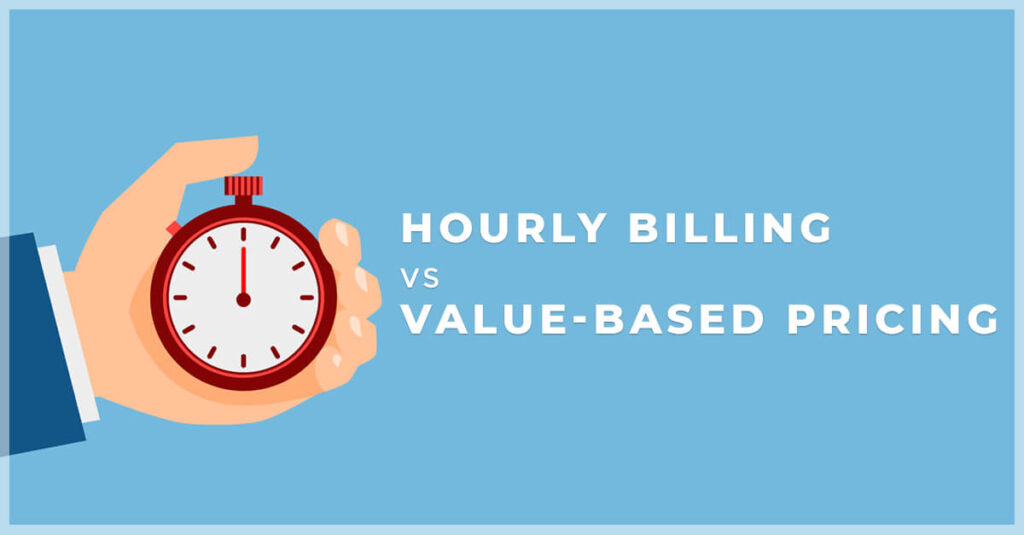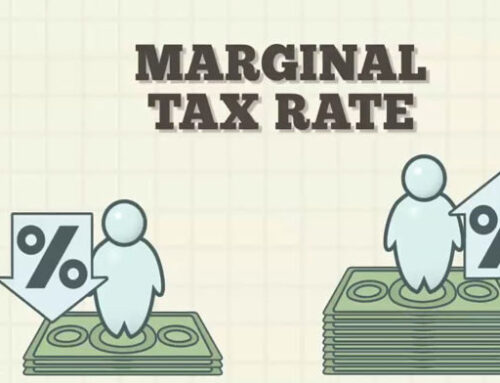The Differences Billable Hour: Hourly vs. Value Pricing
For decades, accounting firms have relied on the traditional hourly billing model, exchanging time for money for billable hour. However, there’s a rising trend towards value pricing, where the focus shifts to determining what customers are willing to pay for expertise before completing the work. In this blog post, we’ll explore the details of value pricing, its pros and cons compared to hourly billing, and how accounting firms can adapt to this changing landscape.
The Details: Understanding Value Pricing
Value pricing revolves around a personalized approach to pricing, tailored to each unique customer’s needs. It involves a thorough understanding of the customer’s requirements and offering them a unique value proposition, which results in a custom price. For instance, providing an automated inventory system that could earn a customer million in revenue or save them significant expenses would justify a higher price compared to the hourly model. The value lies in the eye of the beholder.

Pros and Cons: Hourly Model vs. Value Pricing
The hourly billing model offers the safety net of not losing money on engagements, but it comes with administrative burdens, stress to meet billable hour goals, and potential tension with clients over billed hours. Value pricing eliminates some of these downsides, fostering trust within the team and empowering them to focus on creating value instead of sticking to budgets. From the customer’s perspective, value pricing eliminates the surprise of hourly bills and allows for easier budgeting.
The Advantages of Value Pricing: Pricing Based on Value
The most significant advantage of value pricing is the flexibility to charge an incremental price based on the value delivered, rather than being confined to the time spent. Unlike the hourly model, value pricing allows professionals to price services according to the value perceived by the customer. This approach ensures that expertise is rewarded appropriately, maximizing the return on investment for both the customer and the accounting firm.
Mastering Value Pricing: Determining Scope
Successfully implementing value pricing requires a keen understanding of the scope of work required by the customer. Initial client meetings become crucial in accurately assessing the services needed before commencing the engagement. While hourly billing allows for renegotiating the scope, value pricing requires precise questioning to ascertain customer expectations and value drivers.
The Future of Accounting: Embracing Cloud Solutions
As the accounting industry moves towards cloud accounting solutions, integrating value pricing becomes imperative. Cloud accounting tools bring automation, reducing the hours required for tasks. This shift allows accountants to focus on providing real-time insights and value-added advisory services, enhancing customer satisfaction. The move towards value pricing aligns perfectly with this trend, as firms focus on delivering exceptional customer experiences through meaningful insights and proactive advisory services.

Embrace Value Pricing for Success
The future of accounting lies in value pricing, moving away from hourly billing. Accounting firms must adapt to this paradigm shift, embracing cloud solutions and leveraging automation to deliver real-time insights to their customers. By focusing on value and proactively providing advisory services, accountants can secure their position as trusted partners in their clients’ financial success. Embracing value pricing is not just a business strategy; it’s a pathway to thriving in the ever-evolving landscape of the accounting profession.
Pricing your services is a critical decision for any business, especially for service-based professionals like lawyers, consultants, and freelancers. Two common pricing models in this realm are the traditional billable hour and the more modern approach of value pricing. In this blog post, we’ll dive into the details of each model, compare their pros and cons, and help you decide which approach might be right for your business.
Understanding Billable Hour Pricing
- The Basics of Billable Hour Pricing
Billable hour pricing is a traditional method where clients are charged based on the time spent on a project or task. Professionals keep track of their work hours, and clients are billed accordingly. This approach is widely used, especially in industries like law and accounting.
- Pros of Billable Hour Pricinga. Transparency: Clients can see exactly how their money is being spent, which can build trust. b. Predictable Revenue: Steady work can lead to consistent income for service providers. c. Easy to Implement: It’s a straightforward model to adopt, especially for solo practitioners.
- Cons of Billable Hour Pricinga. Incentivizes Inefficiency: Some professionals may take longer to complete tasks to bill more hours. b. Limited Scalability: Your income is directly tied to the number of hours you work. c. Client Resistance: Clients may be hesitant about unpredictable costs.
Understanding Value Pricing
- The Basics of Value Pricing
Value pricing is a modern alternative that focuses on the perceived value of your services rather than the time spent. Under this model, you set a fixed price for your service based on the value it delivers to the client. This approach is gaining popularity in various industries.
- Pros of Value Pricinga. Incentivizes Efficiency: Service providers are motivated to complete tasks quickly and effectively. b. Client-Centric: Clients know the cost upfront, making budgeting easier. c. Increased Profit Potential: If clients perceive high value, you can charge more than your hourly rate.
- Cons of Value Pricinga. Pricing Complexity: Determining the right value-based price can be challenging. b. Risk of Underpricing: Misjudging the value can lead to undercharging for your services. c. Client Education: Some clients may need convincing regarding the value they will receive.
Also Read: Payment Dates for Canada Child Benefit in 2024
Comparing the Two Models
- Flexibility: Value pricing offers more flexibility, allowing you to capture the full value of your services. Billable hours are rigid and may not reflect the actual worth of your work.
- Client Satisfaction: Value pricing can lead to higher client satisfaction as they know what to expect in terms of costs. Billable hours may result in billing disputes and unhappy clients.
- Revenue Potential: Value pricing can potentially boost your revenue since you’re not limited by the number of hours you can bill. Billable hours offer predictable but capped income.
- Efficiency and Productivity: Value pricing incentivizes efficiency and productivity, while billable hours can encourage overbilling.

Choosing between billable hour and value pricing depends on your business, industry, and client base. While the billable hour model offers transparency and predictability, value pricing can lead to greater client satisfaction, higher revenue, and more efficient work processes. Carefully consider the nature of your services, your client relationships, and your long-term goals before deciding which pricing model aligns best with your business strategy. Remember that you can also experiment with a hybrid approach to find the right balance for your unique situation.
For professionals in various industries, the question of how to charge for their services has long been a subject of debate. Traditionally, the billable hour model has been the go-to method, but in recent years, value pricing has gained traction. In this blog post, we’ll compare the billable hour and value pricing models, exploring their pros and cons to help you make an informed decision about which approach is right for your business.
Billable Hour:
1. The Basics: The billable hour model is straightforward: you charge clients based on the number of hours you work on a project or task. This approach has been a standard practice in various professional services, including law, accounting, consulting, and more.
2. Pros:
- Easy to Track: Billable hours are relatively easy to track and measure, making it simple to calculate fees and generate invoices.
- Guaranteed Compensation: You’re guaranteed payment for every hour you work, which can provide a sense of financial security.
- Client Transparency: Clients can see exactly how their money is being spent, which can build trust.
3. Cons:
- Incentive Misalignment: The billable hour model can encourage inefficiency, as the more hours you work, the more you earn. This can be detrimental to both clients and your business in the long run.
- Limited Income Potential: Your income is capped by the number of billable hours you can work. Scaling your business becomes challenging.
- Client Resistance: Clients may be wary of the unpredictability of hourly billing and may hesitate to engage your services.
Value Pricing:
1. The Basics: Value pricing focuses on the value your services bring to the client rather than the time spent. Instead of charging by the hour, you set a fixed fee based on the perceived value of your work.
2. Pros:
- Alignment with Client Goals: Value pricing aligns your compensation with the outcomes clients desire, fostering a partnership mindset.
- Increased Profitability: You have the potential to earn more as your efficiency and expertise increase. You’re not limited by hours worked.
- Competitive Differentiation: Value pricing can set you apart from competitors still using traditional billing methods.
3. Cons:
- Initial Complexity: Transitioning to value pricing may require a shift in mindset and business processes, which can be challenging initially.
- Value Perception: Setting the right price based on value can be challenging. Overpricing or underpricing can affect client perception.
- Risk Sharing: In value pricing, there’s a risk of overcommitting to results that are not achievable or measurable.

Choosing the Right Model:
Deciding between billable hour and value pricing depends on your industry, your client base, and your business goals. Consider the following factors when making your choice:
- Client Expectations: Some clients may prefer the transparency of hourly billing, while others may appreciate the value-based approach.
- Service Complexity: For highly specialized or complex services, value pricing may be more suitable, as it emphasizes outcomes rather than hours.
- Competitive Landscape: Assess what billing methods competitors in your industry are using to determine if there’s an opportunity for differentiation.
- Efficiency and Expertise: If you can deliver results more efficiently or with higher expertise than your competitors, value pricing may be advantageous.
- Client Relationships: Consider the type of relationships you want to build with your clients. Value pricing often leads to more collaborative, long-term partnerships.
Conclusion:
Ultimately, the choice between billable hour and value pricing depends on your business’s unique circumstances and your ability to effectively communicate and deliver value to your clients. While both models have their merits, the trend in many industries is shifting towards value pricing, as it encourages efficiency, aligns incentives, and fosters stronger client relationships. However, it’s essential to carefully evaluate your specific situation before making the switch to ensure it’s the right fit for you and your clients.
Recent Posts
FAQ
What is the most significant advantage of value pricing compared to the hourly model?
The most significant advantage of value pricing is the flexibility to charge an incremental price based on the value delivered, rather than being confined to the time spent. With value pricing, professionals can tailor the pricing of their services to reflect the value perceived by the customer, rather than solely basing it on the hours worked.
What factors should be considered when deciding between billable hour and value pricing?
When deciding between billable hour and value pricing, you should consider factors such as client expectations, service complexity, the competitive landscape, efficiency, and expertise, as well as the type of client relationships you want to build.
How does client preference play a role in choosing between hourly billing and value-based pricing?
Client preference is a significant factor in choosing the right pricing model. Some clients prefer the transparency of hourly billing, while others appreciate the outcomes-focused approach of value-based pricing.
What advantage can value pricing offer in terms of client relationships and differentiation in a competitive industry?
Value pricing can lead to more collaborative, long-term client partnerships and can differentiate your business in a competitive industry, especially when you can deliver results more efficiently or with higher expertise than your competitors.




